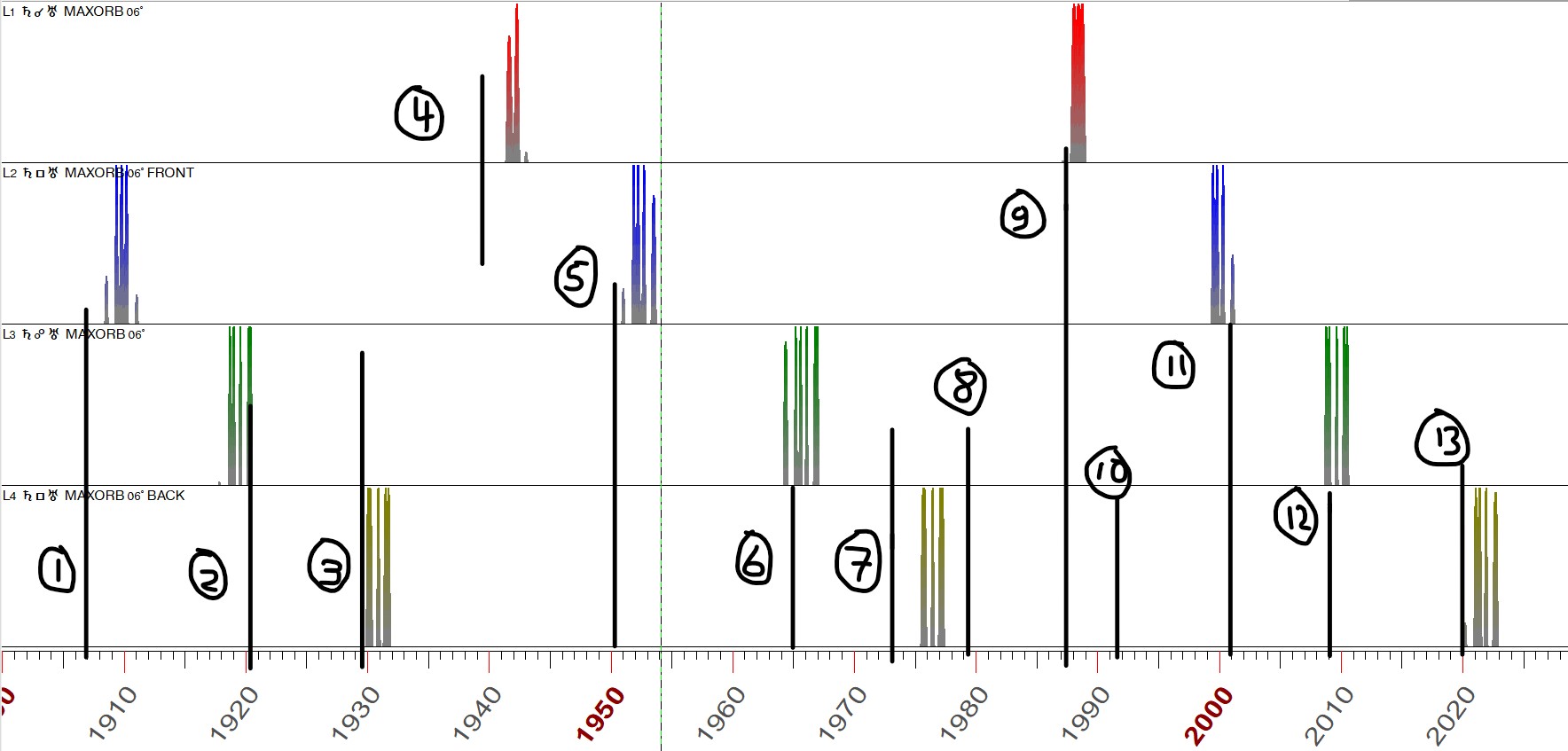INTRODUCTION
Saturn-Uranus Cycle was being discussed in an astrological group and how it can indicate recessions. Using Alphee Lavoie’s Super Search program, I plugged the harsh aspects into the program. The harsh aspects are the conjunctions (wrestling match), the forward and rearward square (rubbing sticks together/T-boned), and the opposition (throwing rocks). These are rudimentary definitions but are not always negative, but they do force issues.
Mars and inward are considered personal planets, while Jupiter and Saturn are considered social planets as they deal with societal norms such as law and order. The outers cannot be seen with the naked eye and are considered transcendental or collective planets. Saturn and Uranus combinations make up the bridge between society and the greater scheme in life.
Saturn is the planet of responsibility and the status quo. Saturn rules recessions, restrictions, and poverty. It is about limits.
Uranus, on the other hand, is about revolution and unexpected shake-ups. His role is the agitator to shake things up when you least expect it.
When these two make the aspects to each other, we get some sort of disruption to the Status Quo. The order of Saturn is challenged by the revolts of Uranus.
The numbers indicate significant periods as defined by the Wikipedia article.[1] The Saturn-Uranus Cycle is depicted below from the period of 1900 to 2028.

Events
Here are a list of the events depicted in the diagram
- Panic of 1907, a U.S. economic recession with bank failure
- Depression of 1920 U.S. following WW1
- Wall Street crash and the great depression
- It was not a depression, but when WW2 started, and by the middle, things were difficult in many places worldwide.
- Korean War had a major effect on Korea, but there was a lot of spending, especially by the U.S.
- Vietnam War – beginning of inflation [2]
- OPEC Oil Crisis and U.K. Banking Crisis
- Energy Crisis – due to the Iranian War
- Black Monday 1987 – U.S. stock market crash
- Early 1990’s recession
- Dot-com recession
- Great Recession of 2009
- Covid 19 recession – Stock market crash of March 9-12
Conclusion
Looking at the table, something is to be said about this hypothesis. Some things do line up, and other aspects may correspond to the events to affect the exact timing, but the status quo does get a wake-up call. Further analysis would be required to expand on this cursory study.
[1] https://en.wikipedia.org/wiki/List_of_economic_crises
[2] https://www.federalreservehistory.org/essays/great-inflation
Book a reading with Franco!
Contact Franco for an appointment!
